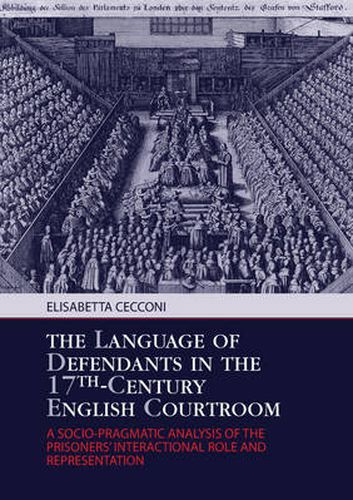Readings Newsletter
Become a Readings Member to make your shopping experience even easier.
Sign in or sign up for free!
You’re not far away from qualifying for FREE standard shipping within Australia
You’ve qualified for FREE standard shipping within Australia
The cart is loading…






This volume analyses the defence system in the 17th-century English courtroom and sees how defendants attempted to construct their discourse identity and articulate their defence in the arraignment section and in the evidence phase of the trial. Drawing upon theories from socio-pragmatics and (critical) discourse analysis the book investigates the complex face-work dynamics operating between defendants and professionals/witnesses, the main defence strategies adopted in the evidence phase and - at the author-readership discourse level - the way in which Royalist defendants were represented in Royalist accounts in the turbulent years of the Civil War. The author draws on a rich variety of trial texts: from high treason to religious subversion, from murder to felony and misdemeanour. In each case the defendant’s discourse behaviour is scrutinised in relation to historical, socio-cultural and institutional variables.
In its double focus on the defendants’ interactional role in the trial and their representation in Royalist accounts, the book offers a valuable reading for historical courtroom linguists, legal historians and researchers in the field of language, ideology and political propaganda in the early modern period.
$9.00 standard shipping within Australia
FREE standard shipping within Australia for orders over $100.00
Express & International shipping calculated at checkout
This volume analyses the defence system in the 17th-century English courtroom and sees how defendants attempted to construct their discourse identity and articulate their defence in the arraignment section and in the evidence phase of the trial. Drawing upon theories from socio-pragmatics and (critical) discourse analysis the book investigates the complex face-work dynamics operating between defendants and professionals/witnesses, the main defence strategies adopted in the evidence phase and - at the author-readership discourse level - the way in which Royalist defendants were represented in Royalist accounts in the turbulent years of the Civil War. The author draws on a rich variety of trial texts: from high treason to religious subversion, from murder to felony and misdemeanour. In each case the defendant’s discourse behaviour is scrutinised in relation to historical, socio-cultural and institutional variables.
In its double focus on the defendants’ interactional role in the trial and their representation in Royalist accounts, the book offers a valuable reading for historical courtroom linguists, legal historians and researchers in the field of language, ideology and political propaganda in the early modern period.